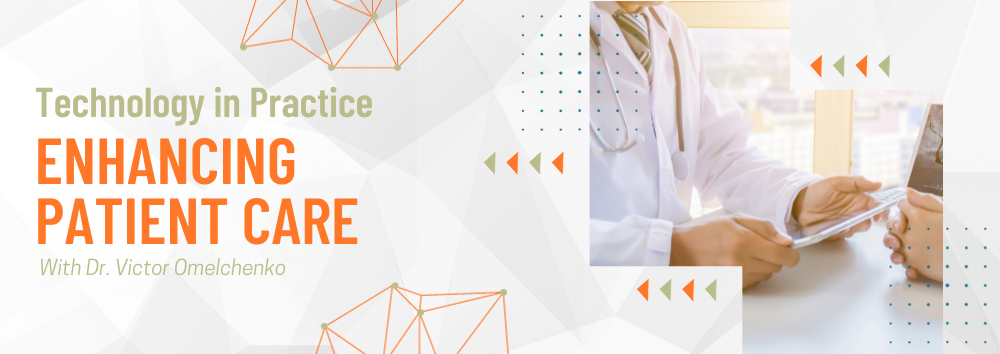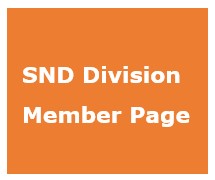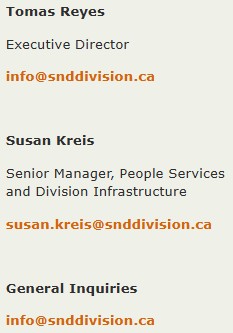
Dr. Victor Omelchenko on Reducing the Mental Load and Improving Quality of Care
*The opinions expressed in this article belong to the Physician and do not represent the opinions or endorsement of the Division.
For some, the word “technology” elicits excitement at new possibilities. For others, it inspires uncertainty, caution or even worry about the time and effort it will require to learn.
For many Family Physicians in Surrey-North Delta, technology offers a way to streamline their practice, achieve better work-life balance and offer more comprehensive care to their patients.
In this series, we explore different technologies that our Family Physician members are using to support the work that they do – from digital fax services to EMR plug-ins and beyond.
Dr. Victor Omelchenko practices at Family Practice Medical Clinic in Guildford and is always looking for new ways to support his practice with technology. During the pandemic, for example, when his clinic experienced an MOA shortage, they temporarily implemented a text-based appointment request system to ensure their patients would have adequate access to care. Many of the technologies Dr. Omelchenko employs achieve two common goals: improved quality of care for the patient and a reduced mental burden for the physician.
Why is it important for you to adapt new technologies in your practice?
The number one reason would be that you're providing, I think, more comprehensive care because you have much more information available right in front of you.
I use all kinds of decision support tools. I've actually built my own, which is like a knowledge base. And I also use programs like UptoDate as well as drug references, because sometimes it's hard to keep all the small details in memory. And new information surfaces all the time - new indications for the same medication, for example. Things are always changing. Some medications are less common than others, and you forget. A lot of doctors, including myself, are traditional. We remember how we used to treat diabetes or blood pressure and we continue doing it that way. It's hard to stay current. But if you have this information easily available, then it allows you to provide better, more up-to-date care.
In addition to these tools, I’ve found that using one’s EMR effectively (we use OSCAR at my clinic) can also help reduce the mental load that physicians carry and contribute to better patient care. With all the reminders and protocols that are built into our EMR, we and our patients are less likely to miss things.
I’ve also designed a whole system of templates for myself – most doctors use templates because they save a lot of time, but they are also great because they can be a reminder of which questions to ask. For example, if you're prescribing contraception pills, with a template you can immediately see both the relative and absolute contraindications. You can go through the checklist and see, okay, she doesn't have migraines with aura, which is a contraindication. She doesn't have any estrogen-dependent breast cancer, which is a contraindication.
This kind of information is especially useful in situations where there are a lot of small details to consider. It provides more safety for you and the patient.
What are some other technologies that you use that have made a big difference? And how have they improved your practice?
Other helpful technology that we use includes electronic phone systems and electronic faxing. We also redesigned the system to allow patients easier access to forms and digital documents, which regular phones can't do.
Our patients now have the option to book their appointments online; we built an MOU in OSCAR which patients can access through a website that we created for the clinic. Now that some of our patients book online our MOAs are able to spend that time on other important tasks.
Another thing that I'm doing is using dictation software; every time I see the patient, I dictate afterwards. It's so much faster than typing and you can dictate more.
There is also a great program called Pathways. We're very much appreciative of that effort because the waiting time to see a specialist is a challenge, but with Pathways, you can access neurosurgery, for example, within a couple of weeks whereas before it was more than a year. It’s a really useful, exciting tool.
How else have these kinds of technologies improved or streamlined or changed your practice?
In addition to the main benefits that I already mentioned, there are so many small nuances that are very beneficial. A key benefit is being able to access EMR data remotely.
We can access the information we need from home, from anywhere. I can actually access it from my cell phone. I do a lot of assisted living visits and I can see the chart for myself, which is also very useful.
Is there any up-and-coming technology that you're excited about?
Something that I have been working for the last two years is a template that will enter information into patients’ charts using slightly different phraseology from one week to the next – because you can’t enter the exact same thing into charts over and over. This is something I’ve been creating on my own, and it’s still in the beginning stages. But I am willing to share once it’s ready.
So that's what I'm personally investing my time in.
I'm also excited that Referral Tracker has recently been integrated into OSCAR. This is a great option, because you can see where your referral is right in your EMR.
Join Us at the 2023 SND Tech Fair: PCN Enablement through Innovation and Technology
Are you interested in learning more about how technology can have an impact on your practice? Do you want to talk with representatives from over 20 of the top medical technology vendors in our region? Join us at the 2023 SND Tech Fair on September 27!
Confirmed Vendors:
- Accuro
- Ava EMR
- BC Family Doctors
- Fraser Health Virtual Health
- eCase
- RACE
- Health Data Coalition
- Waive the Wait
- Mikata Health
- OpenOSP Service Cooperative - OpenOSCAR
- Unimaxx Networks
- Med Records
- Doctors Technology Office
- Pathways
- OceanMD
- CareConnect
- Charting Coach
- Dermcam
- MYLE EMR
- Cian Technologies Inc
- Provincial Language Services
- BC Cancer Prevention, Screening and Hereditary Cancer Program
- Personal Touch
- Profile EMR



